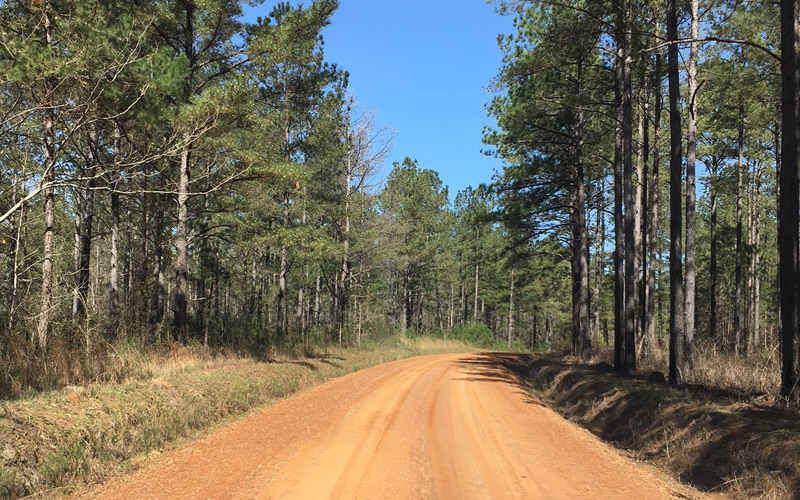
By Andy Brack, editor and publisher | People today often have a tough time imagining the scarcity and sameness of living 100 years ago in the rural South of my grandfather, a 9-year-old tenant farmer in middle Georgia.
 There were no smartphones or Amazon deliveries. People were lucky if they had iceboxes to preserve some fresh food. Cars were few and far between. Folks got to the nearest small town by a horse-drawn or mule-pulled wagon to pick up the few supplies, often on credit, that they couldn’t grow, patch, make or find. They’d buy fatback, tobacco, fertilizer, seeds and flour.
There were no smartphones or Amazon deliveries. People were lucky if they had iceboxes to preserve some fresh food. Cars were few and far between. Folks got to the nearest small town by a horse-drawn or mule-pulled wagon to pick up the few supplies, often on credit, that they couldn’t grow, patch, make or find. They’d buy fatback, tobacco, fertilizer, seeds and flour.
On the farm, they’d make butter from milk from their own cows. They’d get a little protein from eggs or a chicken whose time had come. Fresh vegetables and those canned for the lean months came from a large family garden. Children would sweep the yard, not mow, to control the chicken poop, which would be recycled into the soil. When something broke, they’d fix it. Little was thrown out.
“I wore feed sack dresses,” recalls my mother, born in Arkansas during the Depression. “They were cute because they had great patterns on them.”
There was little variety in a daily life where the toilet was a privy outside or a chamber pot, also known as a “slop jar,” in the corner of the room. From sunup to sundown, there was farm work. Breakfast was generally the same. The big meal was dinner at midday. At night, folks on farms across the Deep South would have the same old leftovers. Things were better in summers when vegetables filled bowls and gardens were rural saviors. But in lean times, particularly during winters, nutrition generally was limited to three colors: white, tan or brown.
Unlike clichés of the rural Southern past, most people didn’t grow up hungry. Still, there wasn’t much fat on them. They were tough, hardscrabble people.
THE ONE THING rural Southerners of days gone by had in abundance was hardship. It shaped their characters and the region’s future. From hardship emanates the soul of today’s South.
When Charles Columbus Brack, my great grandfather, died in September 1917, the Dow Jones Industrial Average was a whopping 72 points. Imagine his reaction 100 years ago if you told him the market would be more than 24,000 points today. He would have believed that about as much a prediction that cars would one day outnumber mules.
Decades of hard times, first those after the Civil War followed by Jim Crow and blights and boll weevils and bad crops, shaped the characters of rural folks across the Deep South. Few ever had much cash in their pockets. So they conserved, reused, recycled and fixed what they had. Their lives were marked by thrift and hard work, not laziness often depicted in caricatures. They couldn’t afford to be lazy – otherwise they wouldn’t eat.
Other than on Sundays at church, rural Southerners were alone most of the time. Week after week, year after year on every Monday through Saturday, families worked on the farm. Six days a week, there wasn’t a lot of contact with outsiders, other than a vendor who periodically drifted by with a rolling cart of goods or during an infrequent Saturday trip to a town store. The lack of the mobility we have today and infrequency of contact from a broad range of people fostered a clannishness, a distrust of outsiders and a propensity to be resistant to change.
Today, it’s not surprising that Deep South voters, the great-grandsons and great-granddaughters of people like Charles Columbus Brack, often feel ignored and left out of today’s insider politics and the mess we call Washington and, sometimes, Columbia.
Disgruntlement with “the man” is in their blood. It’s not too startling that many identify with the frustration and polarization and fear pushed by people like Donald Trump, even though his policies to erect trade barriers or erode environmental protections or question the rule of law may not be in their best self-interest.
For our state to move forward, we need to better understand how the past shapes our current way of dealing with real issues. If we do, maybe we can figure out ways to reduce the hardship still found throughout the rural South.
- Have a comment? Send to: feedback@statehousereport.com.















 We Can Do Better, South Carolina!
We Can Do Better, South Carolina!
Excellent article. This was also true of my grandparents in the coal mining towns of Pennsylvania.
Thank you. Andrea Hoerner, transplanted to SC from PA
Andy-
You just described what my mother, born in 1921, instilled in me – to not forget where we came from. My grandfather was a tenant farmer, and my grandmother went to work at the textile mill in Ware Shoals to save up money to buy them their own farm and send my mother to Winthrop. That broke the string of poverty in my family, helped me get a B.S. and M.S. from Clemson. Now the hard part– how to convey all of this to our children and their children who can’t comprehend the things in your article and take for granted everything we have today.